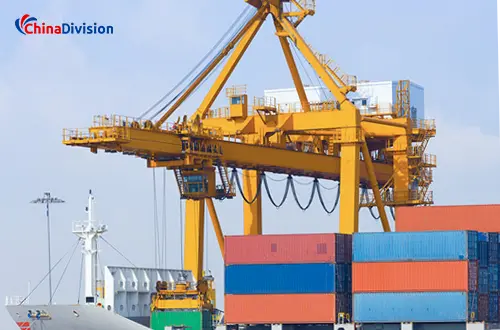U.s. Customs Strictly Checks Ambiguous Cargo Descriptions at All Ports
U.S. Customs and Border Protection (CBP) is increasing its review of imported cargo descriptions, especially those that are vague and non-compliant. This action is one of the main reasons for the recent increase in customs inspection rates.
CBP has made it clear that cargo descriptions need to be precise and not too vague, and customs brokers and freight forwarders should be held to the same standards as carriers and screen data to ensure compliance with cargo declaration regulations. If problems are discovered, cargo information should be quickly reviewed for compliance and necessary corrective measures taken. It also emphasized that customs brokers and freight forwarders should be held to the same standards as carriers and screen data to ensure compliance with cargo declaration regulations.

Ambiguous product names may result in AMS feedback code 6H (Do Not Load), that is, the product is not allowed to be shipped. Only after the product name is modified and complied with, the goods can be shipped by contacting the customs again and obtaining the 6I (Hold Removed) code.
It is worth mentioning that in addition to strict review of cargo descriptions, textiles have also become another key inspection target of US Customs. The announcement issued by the U.S. Department of Homeland Security shows that they are formulating an enhanced strategy to create a level playing field for the U.S. textile industry by combating illegal trade.
Create a level playing field for more than 500,000 workers in the U.S. textile industry by combating illegal trade. The plan will serve as a blueprint for strengthening law enforcement efforts in the future, including strengthening crackdowns on small packaged goods, conducting joint trade special operations, strengthening customs audits and foreign inspections, etc.
Consequences of non-conforming cargo descriptions
Delayed Customs Clearance: Inaccurate cargo descriptions can cause delays in the customs clearance process, increasing time and financial costs for importers.
Fines and Penalties: Providing false or misleading information may be subject to fines and other legal consequences from CBP.
Cargo Detention: In certain circumstances, CBP may detain cargo if the description of the cargo is materially inaccurate or if there are suspected violations.
Learn about the latest adjustments to customs declaration form filling specifications
Importers and customs brokers need to take the following measures:
- Make sure the description of the goods is accurate and specific and avoid using vague descriptions.
- Work closely with shippers and bill of lading issuers to ensure accuracy of cargo descriptions.
- Understand and comply with CBP’s specific requirements and regulations regarding cargo description.
- For key regulated commodities such as textiles, special attention must be paid to compliance to avoid violations.
CBP review focus
Textiles: The United States has specific import requirements for textiles, and CBP will pay special attention to the description of these goods.
Small packaged goods: CBP will strengthen the review of small packaged goods to combat under-declaration of value and tax evasion.
Joint Trade Operations: CBP may cooperate with other law enforcement agencies to combat illegal trade practices.
CBP’s requirements for cargo description are very clear. The cargo description should use plain language and be detailed enough to allow customs to identify the size, shape and characteristics of the goods. At the same time, redundant information that is irrelevant to the product description should not be filled in the product description column.
Learn how to reduce the risk of products being deducted due to inspection to increase the probability of customs clearance of goods.
U.S. Customs is strengthening its supervision of goods to ensure that goods entering the U.S. market comply with regulations and crack down on any violations. Importers and customs brokers need to pay close attention to relevant developments to ensure the accuracy and compliance of goods descriptions, and take corresponding measures to ensure smooth customs clearance to avoid unnecessary trouble and losses.
For businesses or e-commerce sellers who are unfamiliar with U.S. customs inspection regulations, understanding and complying with these regulations can be a complex and cumbersome process. At this time it is very important to seek help from a professional international logistics service provider. As a company dedicated to international logistics services, Chindivision has rich experience and a professional team that can provide comprehensive logistics and transportation services for enterprises or e-commerce sellers.
If you are looking for a reliable international logistics service provider, you are welcome to get in touch with Chindivision. We will serve you wholeheartedly and provide you with efficient and professional logistics and transportation services to make your business smoother and more successful.





